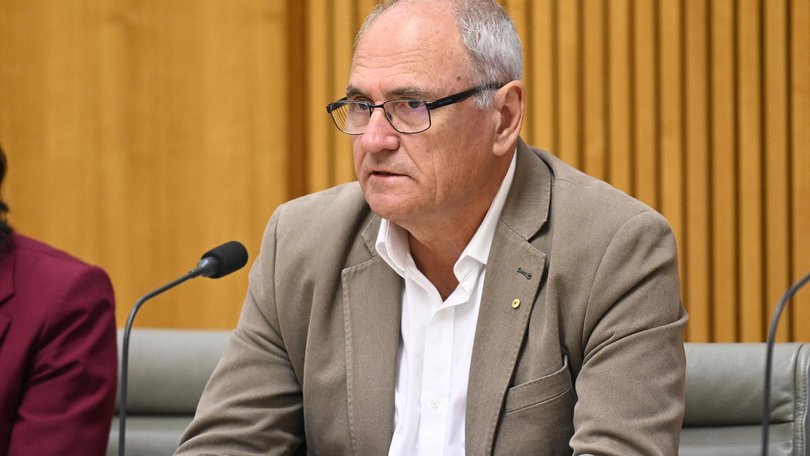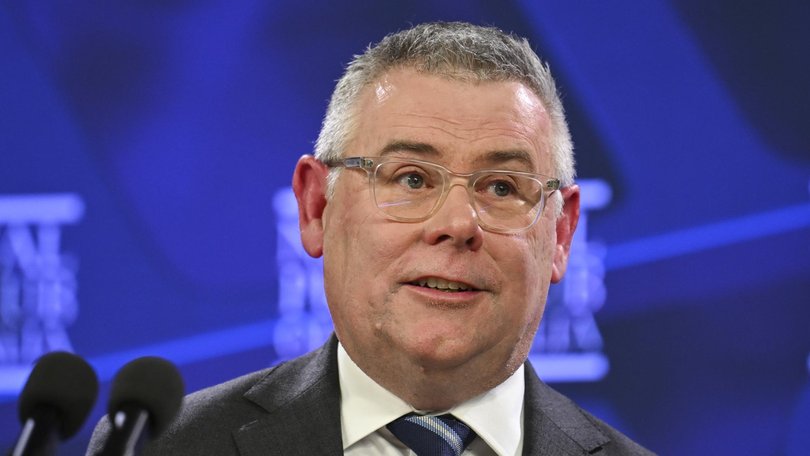Labor’s environmental reforms fail to close 25-year-old Great Barrier Reef loophole: Ken Henry

The Great Barrier Reef would remain unprotected from “irresponsible clearing” and put at risk one of Australia’s largest “employers” under Labor’s planned environmental reforms, a leading economist has warned.
Former Treasury secretary and Australian Climate and Biodiversity Foundation chair Ken Henry said neither the current laws nor the Albanese Government’s proposed reforms would close a 25-year loophole.
Between 2019/20 and 2022/23, 500,000 hectares of forest and woodlands were cleared in catchment areas, Dr Henry said, releasing sediment, chemicals and fertilisers that stress and damage the delicate reef ecosystem.
Sign up to The Nightly's newsletters.
Get the first look at the digital newspaper, curated daily stories and breaking headlines delivered to your inbox.
By continuing you agree to our Terms and Privacy Policy.“The need for the national laws to address this problem is clear on environmental grounds alone,” Dr Henry is expected to tell the Committee for Economic Development of Australia in Brisbane on Wednesday.

“And the case is only amplified by the reef being a significant generator of economic activity.”
Commissioned by the Great Barrier Reef Foundation, a Deloitte Access Economics report released last month found the reef contributed $9bn to the Australian economy annually, as well as some 77,000 jobs.
“If the reef were an employer, it would be Australia’s fifth largest,” Dr Henry is expected to state.
“Yet neither the present laws, nor the proposed reforms, provide the Australian Government with the ability to act to protect the reef from irresponsible clearing, due to a 25-year-old loophole.”
Dr Henry said genuine co-operation was needed between the Federal and Queensland Governments to close the loopholes, but said the State Government didn’t “have to wait to be dictated by the Commonwealth”.
The World Heritage Committee in July called on the Queensland Government to immediately strengthen protections for remnant and high value vegetation, including Category X areas where clearing is exempt from state approval.
“Queenslanders are custodians of some quite outstanding natural and cultural heritage assets, of global significance,” Dr Henry will say.
“These are treasures whose protection and, where necessary, restoration is a shared responsibility between Queensland and the Australian Governments.”
In a statement, a Federal Government spokesperson said the reforms were expected to be passed by the end of the year and were “vital and well overdue”.
“Our reforms will deliver strong new national environmental standards, and they will clearly outline what is an unacceptable impact, specifically on the Great Barrier Reef, as one of the protected Matters of National Environmental Significance,” the spokesperson said.
“There will be higher penalties for the most significant breaches of environmental law, as well as environment protection orders for use in urgent circumstances to prevent and respond to major contraventions of the law.”
The spokesperson said the Albanese Government had invested a record $1.2bn over the nine years 2030 in accelerating action to protect and restore the reef.
“This includes $1.8bn from 2014 to 2030 to improve water quality, including for new programs to boost efforts to reduce sediment run-off in the reef catchments, better manage run-off from agricultural land and urban areas, as well as rehabilitate vital habitats that are important for water quality,” the spokesperson said.
Environmental act ‘failed miserably’
The speech comes as negotiations continue between Labor, the Coalition and the Greens over the Albanese Government’s proposed reforms.
Under the proposal, Environment Minister Murray Watt would be empowered to issue National Environmental Standards, in addition to reforms to the national interest exemption, and clearly define “unacceptable impacts”.
The Bill also seeks to establish a long called for National Environmental Protection Agency.
Dr Henry said the current Act had “failed miserably”.
“This is not a radical view,” he said.
“The last three Australian parliaments have tried to reform these laws.

“The last two attempts ended in failure and acrimony. Neither the environment nor the economy can afford a third failure. Three strikes and we are out.”
The former Treasury secretary said that, with further reforms, Labor’s proposed reforms, which passed the lower house last week, offer “hope of a better approach”.
He noted that the Bill specifically affirmed the Government’s role in protecting the national interest and provided greater certainty on the application of the laws, which Dr Henry said were previously applied on a project-by-project basis.
The reforms would also affect the Federal Government’s net zero aspirations, Dr Henry warned.
“To put it bluntly, there is no chance of Australia meeting stated targets for net zero for renewable energy, for critical minerals development, for housing and transport infrastructure without very high quality national laws that set clear environmental standards for major projects, without a strong national regulator respected by all parties, and without significant improvement not only in Commonwealth environmental protection systems but also in those of the states and territories,” he said.
Originally published as Labor’s environmental reforms fail to close 25-year-old Great Barrier Reef loophole: Ken Henry
